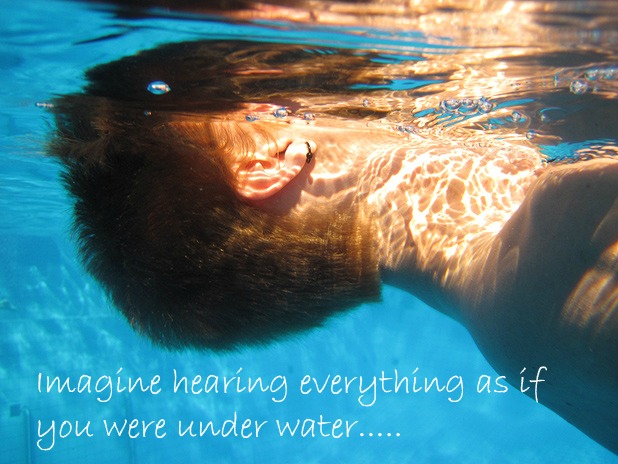As S approaches his second birthday his language development has been progressing more slowly than the norm. Around 18 months he began to use a lot of gestures; his spoken language emerged slowly at around 20 months, his first word being agua, followed shortly by mama. How exciting! I was sure an explosion in his language skills was just around the corner as many people had suggested. However only a week or so after these ‘first words’ he just stopped using them! His current vocabulary at 22 months is still mainly based around noises, rather than words. As well as animal noises, it has slowly built to include: uh oh, cucu, alli, nnnnnn (no), an eurrrgh sound for something dirty, and an amazing woooow sound for something exciting. During this time we have seen a noticeable improvement in his level of comprehension, combined with the quick acquisition of new signs and gestures.
Hearing loss is one of the main causes of language delay in toddlers; and glue ear, which leads to temporary hearing loss, is particularly common in Bristol. Glue ear is a condition where fluid builds up in the ear and muffles the sound you can hear. It is said to be like listening to the world underwater. Glue ear can cause speech and language problems in small children as they are unable to identify speech sounds correctly. Although we have always felt S responds well to noises, turns when someone calls his name and has a good understanding (of Spanish at least), we thought it was best to get any hearing problems ruled out.
A diagnosis of temporary hearing loss
We now know that S has suffered over a period of time from some degree of hearing loss due to congestion in the ears, also known as glue ear. We can’t be sure how long his hearing was affected, but when we visited the Children’s Hearing Centre in May they observed slight hearing loss at low volumes at both high and low frequencies. This may have been the case since the winter, when the condition is most prevalent. Luckily, at his appointment this morning, the congestion had cleared and he was hearing well across the spectrum. Hopefully he will have no further hearing problems, although the audiologists have told us to watch out as it is a condition that comes and goes.
How to help language development following hearing loss.
Knowing that S has experienced some level of hearing loss, albeit slight and temporary, has made us even more aware of the need to provide him opportunities for language and speech development. We were, however, unsure about how to go about this. What should we be doing or avoiding? Would speech therapy help him or will he just catch up given time?
Unfortunately, because he is communicating using gestures and sounds, he is not eligible until his second birthday to be added to the waiting list for for NHS speech and language therapy. In the meantime we decided to explore options for private assessment and therapy sessions, including meeting a Spanish-speaking speech therapist. In the end we have decided to watch and wait for the time being. We are scheduled to have a visit from the health visitor in September for S’s two year health and development check. If he is not meeting language milestones at this point they will refer us to NHS speech and language therapy.
In the meantime we have been in touch with an organisation called I CAN, The Children’s Communication Charity, who sent us some helpful tips and resources. They were really encouraging about using Spanish at home, ‘It’s great to hear that you are raising your son to be bilingual. This will be a very good skill for him to acquire and you should continue to speak both languages regardless.’ They also send a link to this helpful factsheet on bilingualism and language development.
It would be interesting to hear about any other bilingual families who have had a slow start to language acquisition due to temporary hearing loss. How long did it take your toddler to catch up? Did you access speech and language therapy? What kind of exercises do they suggest? I would love to hear your about your experiences.

3 responses to “Language delay and temporary hearing loss”
I love the bilingualism fact sheet! Thanks for sharing. Didn’t know that website, checking it out now! Best of luck to you and your little boy!
Thanks a lot! I was glad they seem very supportive of bilingualism. Good to be able to share resources too.
Hi, we too are a bilingual family in Bristol and I’m currently waiting for an ENT referral for my 8 months old as I’m beginning to be a little worried about his hearing.
I found the fact sheet you shared very interesting as well as the website.